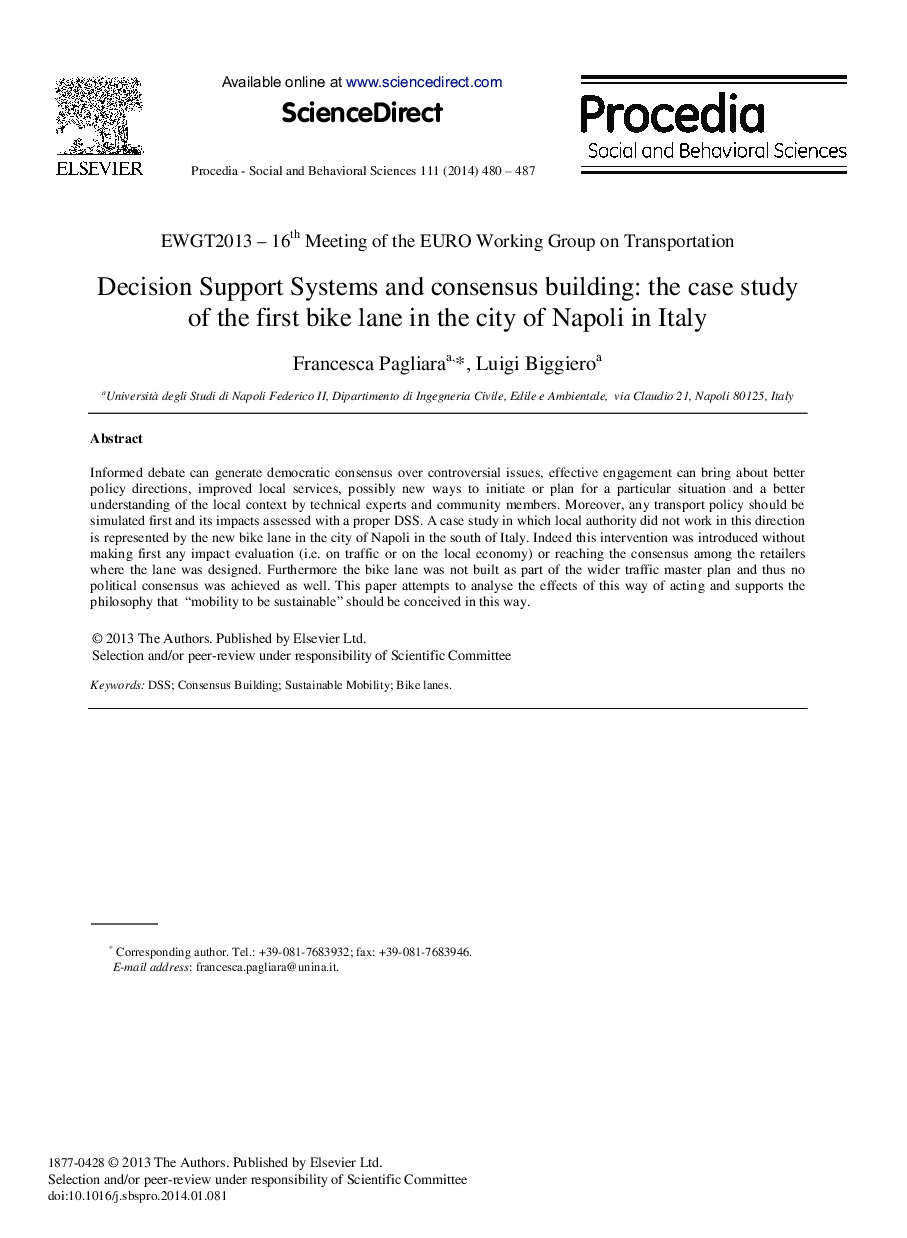| Article ID | Journal | Published Year | Pages | File Type |
|---|---|---|---|---|
| 1115934 | Procedia - Social and Behavioral Sciences | 2014 | 8 Pages |
Informed debate can generate democratic consensus over controversial issues, effective engagement can bring about better policy directions, improved local services, possibly new ways to initiate or plan for a particular situation and a better understanding of the local context by technical experts and community members. Moreover, any transport policy should be simulated first and its impacts assessed with a proper DSS. A case study in which local authority did not work in this direction is represented by the new bike lane in the city of Napoli in the south of Italy. Indeed this intervention was introduced without making first any impact evaluation (i.e. on traffic or on the local economy) or reaching the consensus among the retailers where the lane was designed. Furthermore the bike lane was not built as part of the wider traffic master plan and thus no political consensus was achieved as well. This paper attempts to analyse the effects of this way of acting and supports the philosophy that “mobility to be sustainable” should be conceived in this way.
